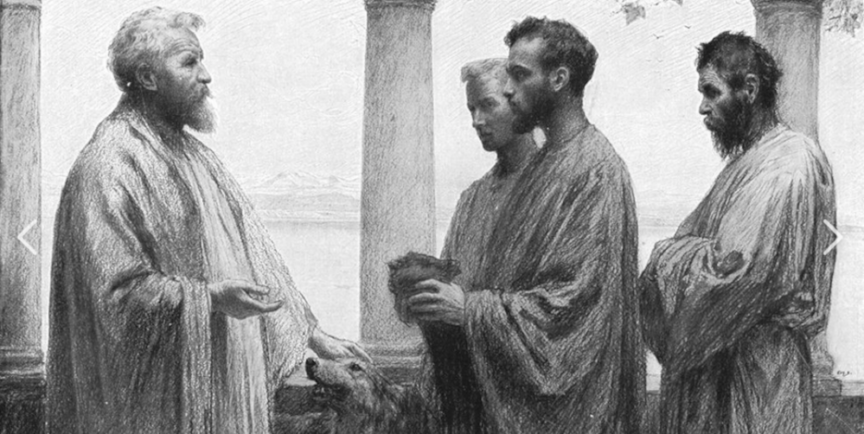by Lisa Mikitarian
How much time do we waste wondering about the breadth and depth of our individual gifts — asking God over and over, from every angle, about the talents He’s presented us with? We ponder if it’s enough to do what we hope to do. How much it is compared to what our neighbors have been given. And when answers come up short — which for humble servants, they invariably do — it can be debilitating, freezing us in time and space, keeping us from doing anything at all.
One line I’ve used to justify my inaction is: “If only I had “this,” then I could do “that.” If only I had more time, I’d volunteer to help my neighbor. If only I had more money, I’d give to my neighbor. If only I had more talent, I’d write a novel for my neighbor — maybe I haven’t said those exact words, but the sentiment was there.
For someone who doesn’t like math, I surely am interested in quantifying that which has been allotted to me.
This is the place I was in life the last time I read the Parable of the Talents (Matthew 25:14-30), where the Master entrusts the first servant with five talents, the second with two, and the third with one. Of course, here “talents” refers to a large monetary unit, but the lesson can be applied to the other kind of talent, as well.
The first servant earns five additional talents, the second earns two, while the third buries it — earning nothing more.
Here’s the part that struck me then and continues to strike me now. When the master comes home, he rewards the first two servants the same. He says to both of them, “Well done, good and faithful servant. You have been faithful over a little; I will set you over much. Enter into the joy of your master.”
You mean the amount I started off with doesn’t matter?
You mean I don’t need to worry about quantifying what I possess?
All I need to concentrate on is doing something with what I hold in my hands? And then I will enter into the joy of my Master?
Oh, I like that … a lot. No more pressure to measure up. What I have is enough. Who cares if I don’t have five talents? I have my precious two.
“They” say that happiness is being satisfied with what you have. That’s not quite how I see it anymore. I think the Bible shows us that happiness is doing with what you have. I certainly don’t want to be the person who, out of fear and worry, buries his talent. The Master calls him a “wicked and slothful servant” and then goes on to say:
For to everyone who has will more be given, and he will have an abundance. But from the one who has not, even what he has will be taken away. And cast the worthless servant into the outer darkness. In that place there will be weeping and gnashing of teeth (Matthew 25:29-30 ESV).
No, Lord! Don’t let me be that person. Therefore, I gratefully and joyfully accept my two talents and will do something with them — right now and for every day You afford me.

